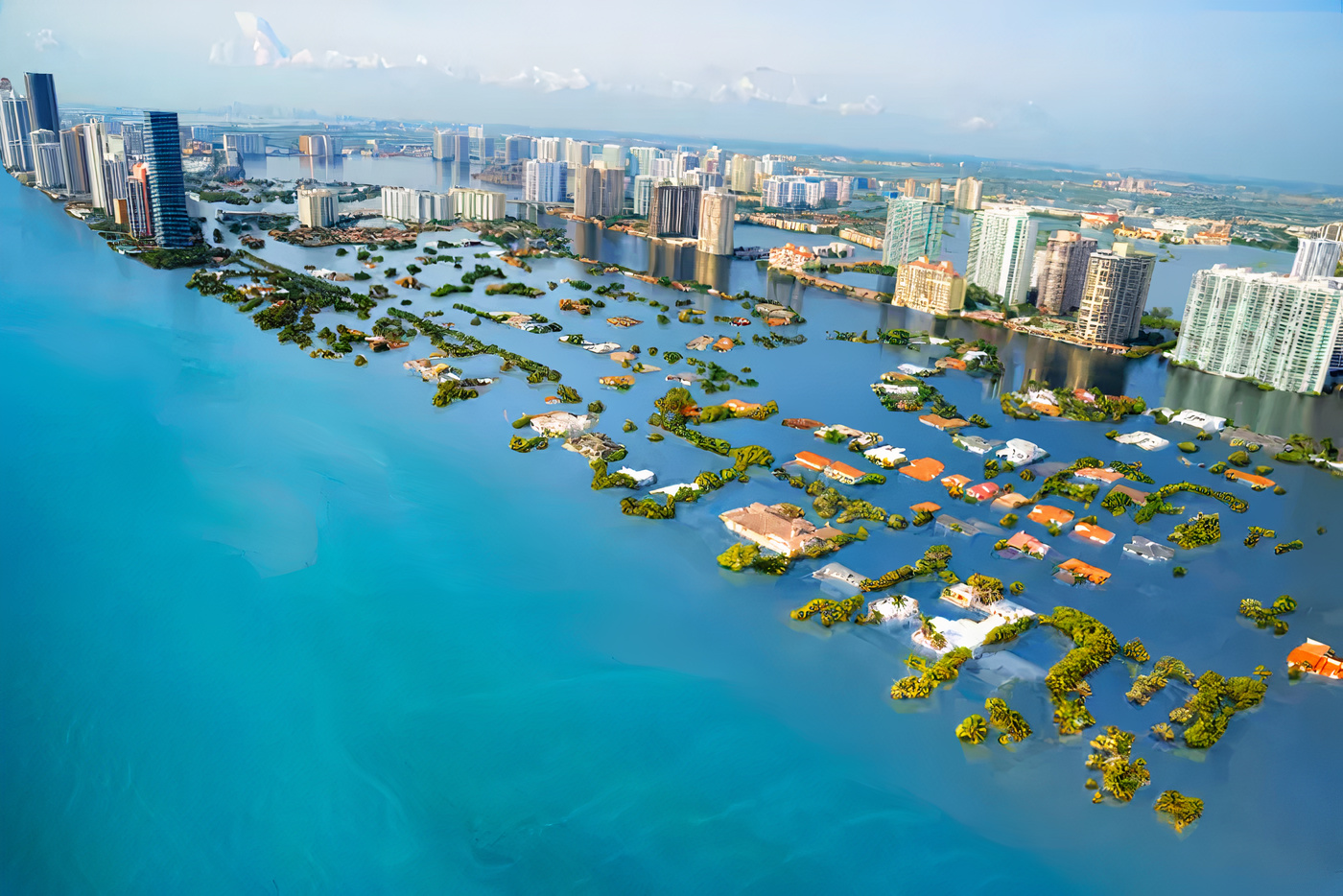Climate Change in Florida: What to Expect in the Next 20 Years
Florida is one of the states in the United States that is most vulnerable to the impacts of climate change. With its extensive coastline, low-lying topography, and reliance on tourism, Florida is expected to experience significant economic, environmental, and social impacts in the coming decades. In this article, we will discuss the most notable impacts of climate change on Florida in the next 20 years.
Rising Sea Levels
One of the most significant impacts of climate change on Florida is rising sea levels. As global temperatures continue to increase, polar ice caps and glaciers are melting, causing sea levels to rise. This rise in sea levels is already causing serious problems for Florida’s coastal communities, including increased flooding and erosion. By the year 2040, sea levels are expected to have risen by several feet, putting much of Florida’s coastline at risk.
Increased Storm Intensity
Another major impact of climate change on Florida is increased storm intensity. As sea levels rise and temperatures warm, the energy available for storms to form and strengthen increases. This means that Florida can expect to experience more intense hurricanes and tropical storms in the future. These storms will cause greater damage to homes, businesses, and infrastructure, as well as put more people at risk of harm.
Impacts on Wildlife
Climate change is also having a significant impact on Florida’s wildlife. As temperatures rise and sea levels rise, many species are being forced to adapt to new habitats, or face extinction. For example, sea turtles are at risk of losing their nesting beaches to rising sea levels, while many bird species are shifting their migration patterns in response to changing temperatures.
Economic Impacts
In addition to environmental and social impacts, climate change is also having significant economic impacts on Florida. The state’s economy is heavily dependent on tourism, and rising sea levels and increased storm intensity are expected to harm this industry. Additionally, the state’s agriculture and fishing industries are also expected to be impacted by changes in weather patterns and increased frequency of storms.
Ron Desantis and Climate Change
Ron DeSantis, the governor of Florida, is a Republican who has taken a skeptical stance on climate change. He has been critical of the mainstream scientific consensus on the causes and impacts of climate change and has taken steps to roll back environmental regulations aimed at reducing greenhouse gas emissions. DeSantis has also expressed support for the expansion of fossil fuel production and infrastructure, such as pipelines and drilling operations. He has been a vocal advocate for Florida’s energy industry, which includes oil and natural gas production, as well as nuclear power.
Going against the scientific research on climate change is problematic because it disregards a vast body of evidence that has been accumulated over decades by thousands of experts in the field. Climate change is a complex and rapidly evolving issue that requires a comprehensive and evidence-based approach to addressing it.
The overwhelming scientific consensus is that the Earth’s climate is changing due to human activities, such as the burning of fossil fuels, deforestation, and other practices that emit greenhouse gases into the atmosphere. Ignoring this scientific consensus can have serious consequences, including further damage to the environment, increased frequency of extreme weather events, harm to public health, and loss of biodiversity, among others. By disregarding the scientific research on climate change, decision-makers risk making decisions that will have long-lasting and potentially devastating impacts on the planet.
Conclusion
In conclusion, climate change is a serious threat to Florida, and its impacts are already being felt. From rising sea levels and increased storm intensity, to impacts on wildlife and the economy, it is clear that action must be taken to address this issue. Whether it’s through reducing greenhouse gas emissions, investing in renewable energy, or adapting to the impacts of climate change, it is important that Florida takes a proactive approach to addressing this issue.

